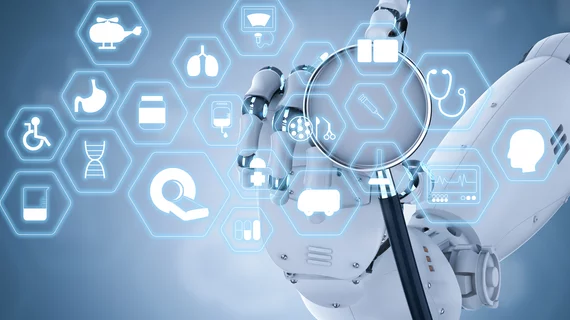AI's impact on cardiology continues to grow, leading to $1.6B in business deals in 2021 alone
Interest in artificial intelligence (AI) solutions capable of diagnosing cardiovascular disease is on the rise, according to a new report from the data analysis company GlobalData.
The report noted that 151 different deals involving AI have hit the cardiovascular devices market since 2020. In 2021 alone, these deals totaled nearly $1.6 billion.
“The continued investment in the development of AI-based cardiology tools reflects the growing potential of AI for manufacturers and cardiologists,” Jacob Fletcher, a medical analyst with GlobalData, said in a statement. “Significant research efforts will be needed to support its adoption into practice, as patient benefits will need to be clearly demonstrated.”
The report highlighted this ongoing trend by pointing to Cleerly’s recent financing success—the New York City-based startup raised $192 million based on its success with using AI to interpret cardiac CT exams—and the collaboration between Novartis and AI specialists Anumana focused on AI-powered electrocardiogram assessments.
CT’s growing role in the connection between cardiology and AI
Cleerly’s massive funding round represents yet another sign that AI-based assessments of soft coronary plaques is one of the biggest stories to watch in 2022 and beyond. This was evident at the Society of Cardiovascular Computed Tomography (SCCT) 2022 annual meeting, where cardiologists and vendors remained focus on AI and its near-endless potential to improve patient care.
“Soft plaque evaluation is something we have been talking about for nearly two decades, but the limitations always have been how to overcome the large amount of post-processing times,” SCCT President Eric Williamson, MD, associate chair of radiology informatics at Mayo Clinic Rochester, told us during the show. “Previously, it was very time and labor intensive. But, with the advent of AI and machine learning, this process can be automated.”
Cleerly and Elucid stand as two of the biggest players in this space due to their FDA approvals for coronary soft plaque assessments, but at least two other vendors are working to join them in the near future, eagerly sharing their progress with SCCT attendees.

